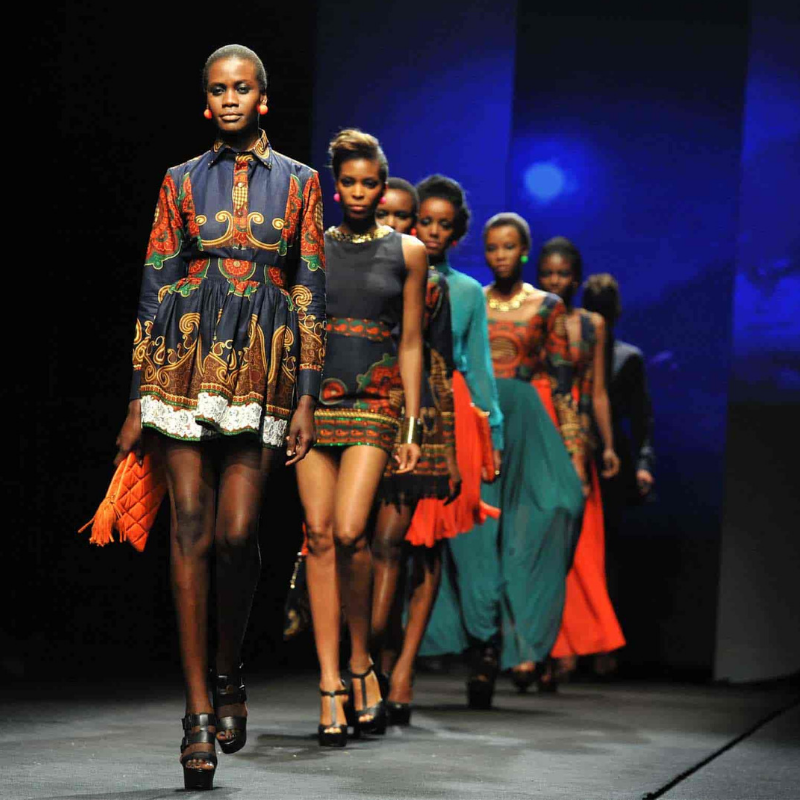By Seun Johnson
From a localized cultural expression to a global phenomenon, Nigeria’s fashion industry has undergone a remarkable transformation over the last decade.
Widely recognized as a powerhouse in the African market, the industry has steadily garnered international attention and set the standard for fashion across the continent.
With projected revenues expected to reach $1.19 billion by the end of 2024, the industry has reportedly recorded steady annual growth of about 17% over the past decade.
This growth has been driven by rising demand and strategic initiatives aimed at enhancing Nigeria’s presence on the global fashion stage.
Experts, however, attribute this significant success to the consistent mastery of marketing strategies, which have propelled local brands and designers into the global spotlight.
One key feature that sets the industry apart is its ability to fuse innovation with culture and tradition. This enables fashion designers to leverage the intersection of over 250 ethnic groups in Nigeria to tell and sell a story that serves as a marketing tool distinguishing the industry on the global stage.
From the bold Ankara prints, which have become synonymous with African fashion, to the hand-woven Aso-Oke and the regal Agbada attire, Nigerian designers have successfully rebranded traditional elements for the modern consumer. This has not only bolstered the profiles of Nigerian brands but also transformed the narrative around African fashion as a whole.
Similarly, social media platforms such as Instagram and TikTok have revolutionized how fashion is marketed in Nigeria. These platforms allow designers and brands to engage directly with their audience, bypassing traditional retail channels.
Additionally, the role of Nigerian influencers and celebrities as brand ambassadors and trendsetters cannot be underestimated in the fashion landscape. Stars like Toke Makinwa, Denola Grey, Ade Bakare, Tiffany Amber, Yemi Oshunkoya, Temi Otedola, and many others have garnered millions of followers by showcasing their unique fashion choices featuring Nigerian brands.
These influencers not only bridge the gap between designers and consumers but also drive visibility and sales.
Further positioning the industry as a global force are fashion shows such as Lagos Fashion Week and Arise Fashion Week. These events have become robust platforms for designers to showcase their creativity and collections to international buyers, media, and fashion lovers.
Through these platforms, many brands have secured partnerships and collaborations with major global retailers.
Moreover, the participation of Nigerian designers in international fashion weeks in cities like Paris, London, and New York has enhanced global visibility for the industry.
For instance, Kenneth Ize’s debut at Paris Fashion Week in 2020 marked a major milestone, as he became the first Nigerian designer to open the prestigious event. These global appearances are central to Nigerian fashion’s marketing strategy, positioning it as a major player on the world stage.
Additionally, the digital revolution has been a game-changer for Nigerian fashion, with more designers opting to sell their collections online, making them accessible to consumers across the globe. Platforms like Jumia and Nigerian e-commerce sites have greatly helped increase the visibility of local brands.
As the industry shifts toward sustainability, Nigerian designers are incorporating eco-friendly practices into their production by using locally sourced materials and promoting ethical fashion.
This commitment to sustainability is becoming a key marketing differentiator for Nigerian fashion, allowing brands to connect with conscious consumers who value ethical practices and giving Nigerian designers a competitive edge in the global marketplace.
As Nigerian designers continue to perfect their craft and harness innovative marketing strategies, they are positioning themselves not just as participants in the global fashion economy but as leaders reshaping the industry.






Comment
No comments found.